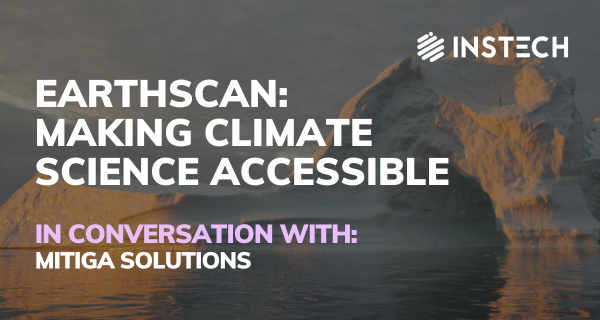Commercialising climate science
Founded in 2018, Mitiga is a spin-off from the National Supercomputing Center in Barcelona. Co-founder and CEO Dr. Alex Martí decided to commercialise some of the outputs he was working on with the backing of the Spanish government.
The two co-founders had noticed a gap in the market. Organisations wanted to understand how climate change would affect their most important assets. At the time, most of the modelling and data providers were using statistical climate models. Mitiga decided to use its physics-based models to make climate science easier to use.
Climate risk reporting
Today, Mitiga helps companies with climate-related regulations and disclosures. There are a lot of mandatory requirements, from TCFD to EU Taxonomy. Mitiga helps with climate risk reporting for companies that are particularly dependent on physical assets or have a large investment portfolio. The other companies they work with are those whose client base needs to understand future climate risk – such as insurers. According to Kate Rodger, Head of Sales:
“A lot of corporates are now asking their insurers for help on understanding climate risk. Whilst insurers have a strong knowledge of traditional catastrophe risk, they often don’t have a department which can help clients understand future risk in a changing climate. Mitiga provides this data which insurers then use to offer insights to their clients, often through their consultancy division.”
Quantifying financial impact
Insurers and corporates are able to access this data through Mitiga’s EarthScan product. Users can upload a portfolio of buildings and receive climate risk intelligence on those assets within seconds. They can assess their exposure from the present day to the end of the century in five-year increments, under a range of potential climate scenarios.
Importantly, EarthScan then quantifies the financial impact. For example, if sea levels are expected to rise by a certain amount, damage curves are used to understand the replacement cost to a building based on attributes such as property age, presence of a basement and building material. Property information is sourced or modelled from third-party data, but users are also able to upload their own data.
Mitiga acquires Cervest
To create its insights, Mitiga uses in-house climate science expertise and high-performance computing. In 2023, Mitiga acquired the intellectual property rights to Cervest, a UK-based climate intelligence company. This has allowed Mitiga to combine its bottom-up, physics-based models with Cervest’s top-down, traditional climate models.
Inputs to Mitiga’s model include data from over 100,000 global weather stations and satellite imagery. Rather than relying on publicly available topography and digital terrain models, Mitiga has created its own. To provide more accurate data, it has removed buildings and trees, which are often interpreted as cliffs in the freely available data sets. This misrepresentation can significantly impact flood risk analysis.
“Not just a reporting company”
Whilst the company’s analytics are often used to comply with mandatory climate disclosures, the team wanted to highlight that it is not just a reporting company.
“Clients use our EarthScan product for pre-transaction due diligence. Understanding how climate could potentially impact return on investment is becoming an increasingly important part of this process.
“Location planning is another area of high demand. We’ve had clients come to us to understand where they should build their next airport or data centre. We provide them with future climate risk data on a range of locations to help them make more informed decisions.
“Finally, EarthScan helps clients with supply chain resilience. We can explore how climate change could impact an organisation’s entire operations – not just the assets that they own. This helps with business continuity planning and supplier diversification decisions.”
Plans for the future
In 2024, Mitiga is continuing to invest in its climate science expertise and ease of use for its users. Although climate change is a complicated topic (and Mitiga’s modelling is far from simple), the company aims to communicate potential future risk with the best clarity for decision making.
“Whilst EarthScan is a self-service tool, our team of scientists is always on hand. If a client wants to understand our modelling approach or why they have received a certain output, we can always set up a call. Transparency is incredibly important to us.”
The team is interested in speaking to any corporates or insurers that are looking for a deeper understanding of future climate risk.
“As well as bringing value to existing clients and creating a new potential revenue stream, insurers can use EarthScan internally. Insurers are facing the same reporting requirements as many other companies – and we would love to help.”


